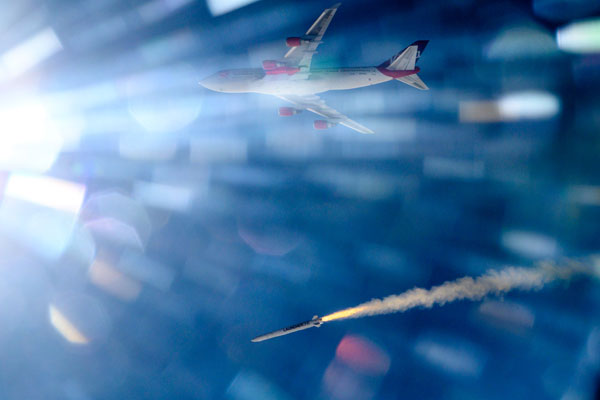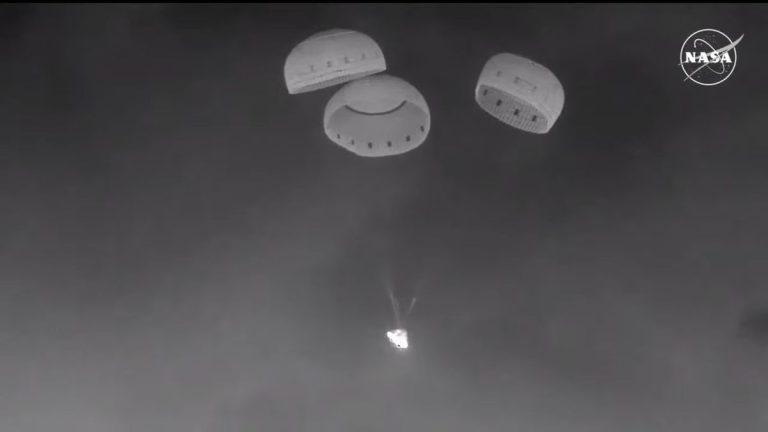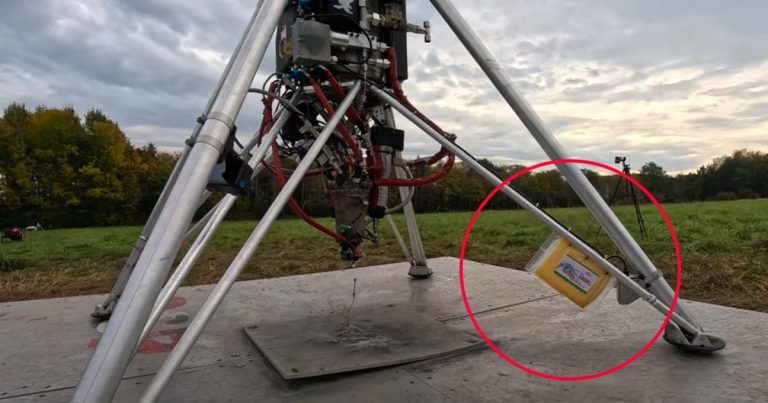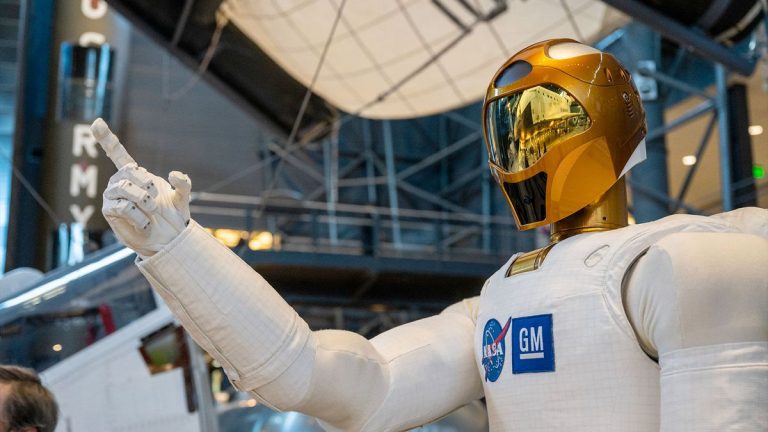
Virgin Orbit Stock Plunges as UK Launch Fails (Image Credit: Payload)

Virgin Orbit’s (NAS: VORB) much hyped “Start Me Up” launch from the United Kingdom failed on Monday, sending nine satellites plunging to their doom and the company’s stock price sinking to its lowest point ever. The failure raised more questions about the financial viability of Richard Branson’s cash-strapped company.
Virgin Orbit initially tweeted that its air-launched LauncherOne booster had succeeded in placing the satellites into orbit. It later tweeted that the mission had failed after the rocket suffered an unidentified anomaly. The company said it would provide more information at a later time.
LauncherOne’s record fell to four successes and two failures. The four successes came in 2021 and 2022 after LauncherOne failed on its maiden flight on May 25, 2020.
The failure came two months after Virgin Orbit said in a public filing that its management had “substantial doubt” about the company’s survival due to dwindling cash to fund its operations.
LauncherOne was dropped over the Atlantic Ocean off the southern coast of Ireland by the modified Boeing 747 Cosmic Girl. The airliner took off from Cornwall Newquay Airport, which has been designated Spaceport Cornwall.
The rocket carried nine satellites from the United Kingdom, United States, Oman and Poland. The AMAN Earth observation spacecraft was to have been Oman’s first satellite.
Virgin Orbit
Start Me Up Launch Payloads
| Payload | Company/Agency | Purpose | Nation |
|---|---|---|---|
| AMAN | ETCO | Earth observation | Oman |
| CIRCE A, B | DSTL*/NRL# | Ionospheric research | UK/USA |
| DOVER | RHEA Group | Tech demo | UK |
| ForgeStar-0 | Space Forge | Tech demo | UK |
| IOD-3 Amber | Satellite Applications Catapult | Maritime domain awareness | UK |
| Prometheus 2A, 2B | UK Ministry of Defence/NRO+ | Tech demo | UK/USA |
| STORK-6 | SatRevolution | Earth observation | Poland |
# U.S. Naval Research Laboratory
+ National Reconnaissance Office
Virgin Orbit generated considerable excitement in the UK for the first orbital launch of satellites from Europe. It was also Virgin Orbit’s first launch outside the United States. All previous missions have originated from the Mojave Air and Space Port at Rutan Field in California and launched over the Pacific Ocean.
Liquidity Challenges
Virgin Orbit’s closed down 8.53 percent at $1.93 after opening at $2.23. The stock plunged to an all-time low of $1.25 in after-hours trading before rising to $1.39.
The failure comes two months after Branson’s company issued the following warning in its third quarter report: (Emphasis mine)
“We have not generated positive cash flows from operations or sufficient revenues to provide sufficient cash flows to enable us to finance our operations internally, and may not be able to raise sufficient capital to do so. As a result of the Company’s assessment of going concern considerations, management has determined that the liquidity condition raises substantial doubt about the Company’s ability to continue as a going concern.“
Virgin Orbit’s cash reserves dwindled from $194.2 million at the end of 2021 to $71.2 million at the end of the third quarter on Sept. 30. The amount included a convertible debenture loan from Yorkville Advisors that added $50 million to the balance sheet last June. Yorkville converted the loan into shares of Virgin Orbit.
Third quarter revenue was $30.9 million and the net loss was $43.6 million. The company’s net loss was $139.5 million for the first nine months of 2022.
Branson’s Virgin Group injected $25 million into Virgin Orbit on Nov. 4, which was three days before the company reported its third quarter losses.
On Nov. 23, Virgin Orbit announced it has abandoned plans to sell additional public shares “due to current market conditions.”
“Virgin Orbit Holdings, Inc….today announced that it evaluated the possibility of conducting an offering of its securities. Due to current market conditions, the Company has elected not to proceed with an offering. Any future capital raising transactions will depend upon future market conditions,” the company said in a press release.

Virgin Group subsequently pumped another $20 million into the launch company. The infusion came through the sale of a senior secured convertible note to Virgin Investments Ltd.
Last week, Virgin Orbit sold additional shares to Yorkville Advisors in a deal that is likely to raise around $45 million. Yorkville’s ownership of the company will increase to 9.99%.
The three cash injections will total around $90 million. How long that will last is unclear. As a reminder, Virgin Orbit had a net loss of $43.6 million in the third quarter on revenue of $30.9 million. The company’s net loss was $139.5 million for the first nine months of 2022.
Losses are likely to continue to mount and revenue dwindle if LauncherOne is grounded for an extended period of time due to the failure on Monday.
Virgin Orbit had aimed to triple its previous annual launch cadence by conducting up to six missions in 2022. It ended up launching only twice.
Virgin Orbit had anticipated launching from Cornwall in August. However, regulatory delays in obtaining the required licenses published the flight into 2023.
Struggling Space SPAC
Virgin Orbit has struggled with funding since going public at the end of 2021 by merging with a special purpose acquisition company (SPAC) named NextGen Acquisition Corp. II. A SPAC is a “blank check” company that is already publicly traded; the investment vehicle’s only purpose is find a company to take public under its own name. A SPAC typically has two years to complete a merger or to return investors’ money. Investors can ask for their money back if they don’t like an approved merger deal.

Virgin Orbit and NextGen had planned to raise $483 million, with $383 million coming from SPAC investors and $100 million from outsiders. The total amount raised was only $228 million. Only $68 million came from the SPAC, indicating that many investors asked for their money back rather than put their money into Virgin Orbit.
The Virgin Group and Mubadala Investment Co. invested an additional $60 million to raise the amount provided by outsiders to $160 million. Mubadala is the sovereign wealth fund of the Abu Dhabi government and a co-owner of Virgin Orbit.
Virgin Orbit went public near the end of a wave of space SPACs that kicked off three years ago by its sister company, Virgin Galactic (NYS: SPCE). Branson’s space tourism company began trading on the New York Stock Exchange on Oct. 28, 2019, after merging with a SPAC run by Silicon Valley billionaire Chamath Palihapitiya.








